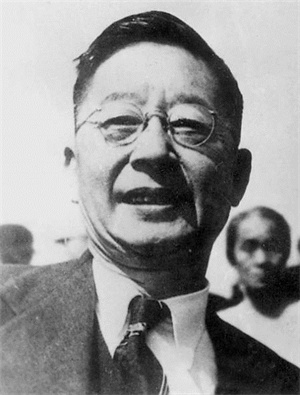狗
◎ 老舍
中国狗恐怕是世界上最可怜最难看的狗。此处之“难看”并不指狗种而言,而是与“可怜”密切相关。无论狗的模样身材如何,只要喂养得好,它便会长得肥肥胖胖的,看着顺眼。中国人穷。人且吃不饱,狗就更提不到了(1)。因此,中国狗最难看;不是因为它长得不体面,而是因为它骨瘦如柴,终年夹着尾巴(2)。
每逢我看见被遗弃的小野狗在街上寻找粪吃,我便要落泪。我并非是爱作伤感的人,动不动就要哭一鼻子(3)。我看见小狗的可怜,也就是感到人民的贫穷。民富而后猫狗肥(4)。
中国人动不动就说:我们地大物博。那也就是说,我们不用着急呀,我们有的是东西,永远吃不完喝不尽哪!哼,请看看你们的狗吧!
还有:狗虽那么摸不着吃,那么随便就被人踢两脚,打两棍,可是它们还照旧的替人们服务。尽管它们饿成皮包着骨(5),尽管它们刚被主人踹了两脚,它们还是极忠诚的去尽看门守夜的责任。狗永远不嫌主人穷(6)。这样的动物理应得到人们的赞美(7),而忠诚、义气、安贫、勇敢,等等好字眼都该归之于狗。可是,我不晓得为什么中国人不分黑白的把汉奸与小人叫作走狗,倒仿佛狗是不忠诚不义气的动物。我为狗喊冤叫屈(8)!
猫才是好吃懒作,有肉即来,无食即去的东西。洋奴与小人理应被叫作“走猫”。
或者是因为狗的脾气好,不像猫那样傲慢,所以中国人不说“走猫”而说“走狗”?假若真是那样,我就又觉得人们未免有点“软的欺,硬的怕”了(9)!
不过,也许有一种狗,学名叫作“走狗”;那我还不大清楚。
The Dog
◎ Lao She
Of all dogs in the world,those in China are perhaps the most pitiful and ugly-looking.But it is their wretched life rather than their breed that is to blame for their ugliness.All dogs,if well-fed,will be plump and nice-looking irrespective of their bodily form.In poverty-stricken China,people don’t even have enough to feed themselves,let alone dogs.Chinese dogs are ugly-looking not because they are born like that,but because they’ve been reduced to skin and bones by hunger,with tails between their legs all the year round.
I always feel like crying whenever I see a homeless little dog roaming about the street in search of human excrement.It doesn’t mean that I’m a sentimental,lachrymose sort.It’s because I associate the misery of the little dog with the poverty of our people.Our cats and dogs will never get nice fat unless our people are well-off.
We are apt to declare that ours is a big country with rich natural resources,meaning that there is no need for us to worry because we have plenty of everything to last us forever and ever.Well,why not take a look at our dogs!
Dogs always remain man’s faithful servants though they are under-fed and kicked and beaten without any reason.A dog continues to perform with loyal devotion the duty of guarding the door and keeping watch at night though he has been starved to a skeleton and kicked at by his master.He never minds how poor his master is.Such an animal deserves our high praise.We should attribute to them such laudatory epithets as“devotion”,“loyalty”,“content with poverty”,“courage”,etc.But I wonder why we have been undiscriminatingly calling traitors and villains“running dogs”,as if dogs were disloyal and unfaithful animals.I should voice grievances for them!
Cats,however,are greedy and lazy.They come to you when you have meat to offer,but otherwise leave you.Flunkeys of imperialism and mean persons should have been called“running cats”.
Perhaps the reason why we prefer to say“running dogs”rather than“running cats”is that dogs are good-tempered while cats are supercilious.If so,I would think that people are perhaps inclined to bully the weak and fear the strong.
Maybe there is a kind of dog whose scientific name is“running dog”.I’m not quite sure.
《狗》是小说家、剧作家老舍(1899—1966)于1944年12月10日发表在《新民报晚刊》上的一篇杂文。时逢国难,作者爱狗、谈狗,借此表达了自己忧国忧民的纯真感情以及对洋奴、汉奸、小人的憎恨。
注释
(1)“中国人穷。人且吃不饱,狗就更提不到了”可按“在贫穷的中国,人们吃不饱,更别提狗了”译为In poverty-stricken China,people don’t even have enough to feed themselves,let alone dogs,其中成语let alone作“更别提”、“更不必说”、“遑论”解,意同much less。
(2)“是因为它骨瘦如柴,终年夹着尾巴”译为but because they’ve been reduced to skin and bones by hunger,with tails between their legs all the year round。此句也可译为but because they’ve been reduced to skin and bones by hunger,dragging out a miserable existence with tails between their legs,其中by hunger(由于挨饿)和dragging out a miserable existence (悲惨地度日)是译文中的增益成份,原文虽无其词而有其意。
(3)“我并非是爱作伤感的人,动不动就要哭一鼻子”译为It doesn’t mean that I’m a sentimental,lachrymose sort,其中lachrymose的意思是“爱哭的”;sort的意思是“某一种人”,等于sort of person。此句也可译为It doesn’t mean that I’m a sentimental sort easily moved to tears。
(4)“民富而后猫狗肥”译为Our cats and dogs will never get nice fat unless our people are well-off,其中nice是副词,修饰fat,作“讨人喜欢地”(pleasingly)解,是译文中的增益成分,原文虽无其词而有其意。
(5)“饿成皮包着骨”译为starved to a skeleton,和reduced to skin and bones by hunger同义。
(6)“狗永远不嫌主人穷”可译为He never minds how poor his master is或He never complains of his master being so poor。
(7)“这样的动物理应得到人们的赞美”可译为Such an animal deserves our high praise或An animal like this ought to earn out high commendation。
(8)“我为狗喊冤叫屈”可译为I should voice grievances for them或I should cry out against such injustice on behalf of hem。
(9)“人们未免有点‘软的欺,硬的怕’了”可译为people are perhaps inclined to bully the weak and fear the strong或people are perhaps prejudiced against the weak but in favour of the strong。
 帕布莉卡
帕布莉卡
